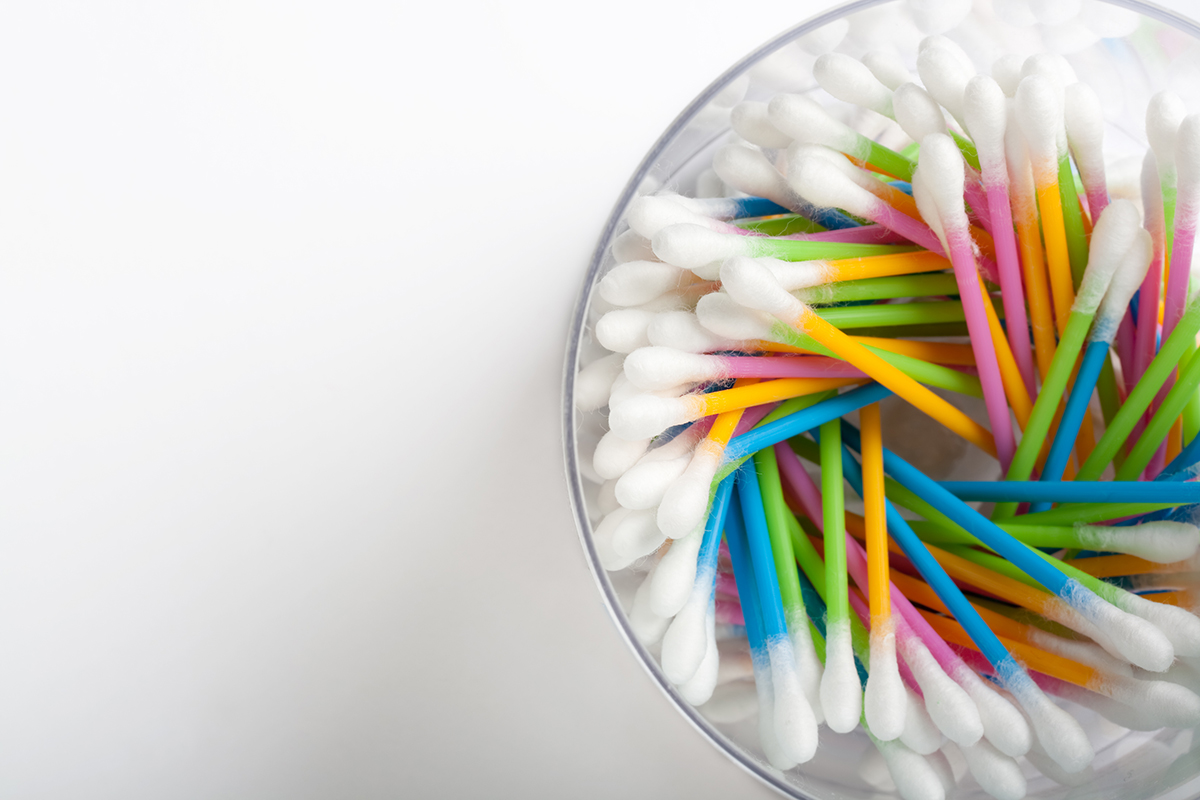Ask the Expert: What Can I Use Instead of Q-tips?

Photo via istock.com/picamaniac
By now, you’ve probably heard about that report from the American Academy of Otolaryngology. You know—the one that told you to seriously stop using Q-tips already, once and for all.
That’s not new advice, of course. You’ve probably heard (and ignored) similar things for years. And we get it, old habits die hard. That’s why we asked Dr. Felipe Santos, a neurotologist at Massachusetts Eye and Ear, if you really need to ditch the Q-tips, and what you can use instead.
Question: Is there any safe way to clean my ears?
Answer: Yes—but you probably don’t need to.
The details:
First thing’s first: Cleaning your ears usually isn’t necessary, Santos says. Wax is actually a good thing, keeping your ears bacteria-free and protecting the skin of the ear canal. “We really do recommend doing nothing,” he says. “It’s not a reflection of poor hygiene. It’s just best left alone.”
Okay, but what if you really, really want to? Still don’t reach for a cotton swab, Santos says.
“The head of a Q-tip is about the diameter of an ear canal, so anything that’s in front of the Q-tip is going to go deeper into the ear canal,” Santos says. “Over time, more and more accumulates in the deeper ear canal, and that’s when patients develop impactions.” Ear cleaning can also cause fungal infections, ear canal or eardrum damage, and dry skin inside the ear.
Cleaning is usually only necessary if earwax is affecting your hearing or causing regular itchiness; if you’re experiencing drainage from the ear; if you have certain medical conditions; or if you produce an excessive amount of wax, as told by a doctor. If you fall into one of those camps, Santos says you have a few safe options. (And no, none of them involve Q-tips.)
He recommends using over-the-counter ear drops, called cerumenolytics, or a few drops of mineral oil. “It’s lubricating the wax and softening it, so it doesn’t harden in the ear canal and stick,” Santos says.
Hydrogen peroxide is another safe at-home option, though Santos cautions that it can sometimes exacerbate the problem by drying out your skin. “If the underlying problem is actually eczema or dry skin that’s clinging onto the wax, you end up chasing your tail a little bit,” he says. If you don’t experience dryness, though, hydrogen peroxide is probably fine.
Last but not least, Santos says you should “never, under no circumstances” resort to ear candling, a practice that involves lighting a special candle and placing it in the ear, allegedly creating a vacuum effect that coaxes out wax. Perhaps unsurprisingly, Santos says it’s ineffective and possibly unsafe. “It can be dangerous, and we have seen patients that have incurred burns in the ear canal and on the eardrum,” he says. “We really don’t recommend that at all.”
The bottom line:
Step away from the Q-tips. Blow out the candles. If you actually need to clean your ears, relief is only a few drops away.


